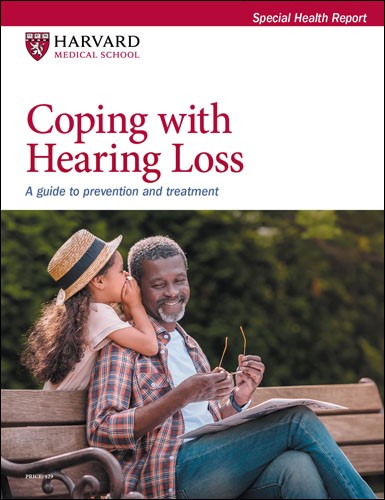Hearing aids: Can they help thinking skills, too?
News briefs
- Reviewed by Anthony L. Komaroff, MD, Editor in Chief, Harvard Health Letter; Editorial Advisory Board Member, Harvard Health Publishing

Hearing aids and similar devices may do more than help you detect sound better. A large analysis published online Dec. 5, 2022, by JAMA Neurology suggests the devices might play a role in protecting your thinking abilities. Scientists reviewed dozens of randomized controlled trials and observational studies that looked at the cognitive effects of hearing aids or cochlear implants (implanted devices that translate sounds into electrical signals and transmit them to the brain). The research involved more than 137,000 people who were followed from two to 25 years, depending on the study. Compared with people who didn't use the devices, people who did use them had a 19% lower risk of cognitive decline. Using the devices was also tied to a 3% improvement in cognitive test scores. Scientists say there could be many reasons for the associations. For example, it could be that hearing aids help people take part in conversations, staving off social isolation, which is associated with dementia. And since hearing aids are more accessible and affordable than ever, it might be time to consider getting a device if you notice a change in your hearing.
Image: © peakSTOCK/Getty Images
About the Author

Heidi Godman, Executive Editor, Harvard Health Letter
About the Reviewer

Anthony L. Komaroff, MD, Editor in Chief, Harvard Health Letter; Editorial Advisory Board Member, Harvard Health Publishing
Disclaimer:
As a service to our readers, Harvard Health Publishing provides access to our library of archived content. Please note the date of last review or update on all articles.
No content on this site, regardless of date, should ever be used as a substitute for direct medical advice from your doctor or other qualified clinician.
















